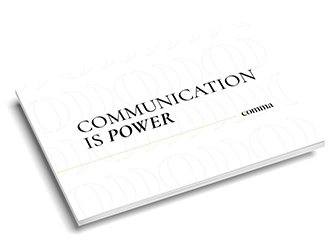“The Word is a great dominator, which has the smallest and extremely invisible body, carrying out the most divine of deeds as it is able to put an end to fear and remove pains, fill one with happiness and inspire mercy.” This was said by none other than the sophist, Gorgias of Leontini in his work Encomium of Helen a mere 2400 years ago.
There is nothing new under the sun, friends, and this statement is just as relevant today with a terrible sense of urgency and validity.
A couple of weeks ago, during a Socratic debate here at the agency, the following question came up – Can communication change reality? Our exercise lead us down other paths but the question remained in the air and I have decided to revisit it today and not let it vanish in the ether.
In this absurd, convulsed, aggressive, manipulative moment in time…in which we are living in, now more than ever, communication makes us look at life from a certain angle, one that is usually of interest to the great powers.
Information normally reaches us purified and filtered according to the agenda of media outlets, who decide – in many cases guided themselves by the powers that back them – of what we have to be informed about and in what way, and those that we do not need to learn about. Communication is what makes some happenings important (Brussels attacks) and others unimportant (Pakistan attacks). In this sense, what is said ends up creating reality, as my friend José Manuel Velasco rightly pointed out not so long ago, specifying how language is capable of changing reality. It is not the same to say “I have to study” as “I want to study” nor to send a team of cameras and journalists to Brussels as it is to gather your information from international newsagents.
Many think that what the media outlets do not publish, does not exist, is not real. And what is not talked about, must not be real. How much truth is there in this? Last March, a massive mobilization was held on the 40th Anniversary of the coup d’ état in Argentina. Curiously, none of the Spanish media outlets covered this news despite having been massively followed. Latinoamérica is a good example to analyze in order to see how communication can change reality. After the president, Maurici Macri´s rise to power (by the way, indicated by the Panana Papers), all appeared to be calm in this country in comparison with almost daily news that we received when Ms. Kirchner was governing that did so much damage to some Spanish multinationals. We could extrapolate this example from many other Latin American countries, for example Venezuela, and obviously, from our country and what is happening more generally on our continent.
Personally, I think yes, that communication, that words can change reality for better or worse. It is communication that encourages our distressed souls and distresses our unsuspecting and easily frightened souls. It is communication that fills us with fears and gives us a sense of calm. What do you think?





